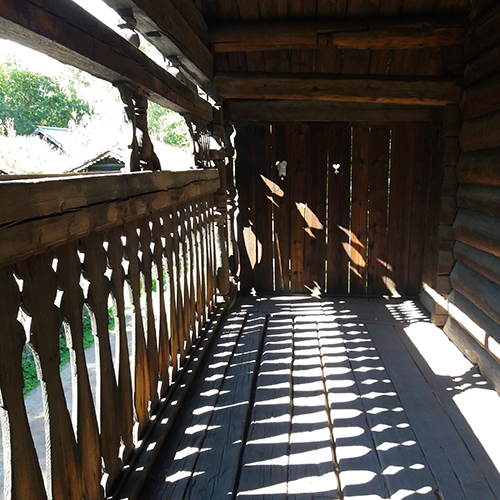Biodiversity and climate change adaptation through non-discrete architectural spaces and architectures
Systemic approach to traditions for sustainable futures
DOI:
https://doi.org/10.7577/formakademisk.2287Sammendrag
The research claims that traditions are not static. They develop and adapt based on the present situation. Due to the recent climate extremes coming to formally mild climate locations, their architectures can learn from traditional ones from more climate extreme locations. The present systemic design study on semi-interior, ‘non-discrete spaces’ (Hensel, 2013; Hensel & Turko, 2015), of Norwegian traditional architectures, so called ‘svalgangs’ and ‘skuts’ examine its reuse for today climate change adaptation and support of biodiversity that is currently decreasing. Our agricultural land become so toxic, that its species are recently moving and adapting for life in the cities. The discussed traditional spaces offer various boundary penetration of its surrounding environment while providing mediation of its biotic and abiotic agency. These do not cover only anthropocentric benefits for its users such as light and climate comfort but also offer opportunities of communication with other species or their sheltering.
This practitioners’ historical research survey motivated by design co-developes its own systemic process based methodology Systemic Approach to Architectural Performance that originates from ‘Systems Oriented Design’ (Sevaldson, 2013b) and ‘Time Based Design’ (Sevaldson, 2004). Where, this ‘non-anthropocentric architecture’ (Hensel, 2012) is in over-evolving co-design with ambient environment’s abiotic and biotic agents, including humans.

Nedlastinger
Publisert
Hvordan referere
Utgave
Seksjon
Lisens
- Forfatteren(e) beholder sin opphavs- og kopieringsrett til eget manuskript, men gir tidsskriftet varig rett til 1) å fremføre manuskriptet for offentligheten i den opprinnelig publiserte digitale form, og 2) å registreres og siteres som første publisering av manuskriptet.
- Forfatteren må selv forvalte sine økonomiske kopieringsrettigheter overfor eventuell tredjepart.
- Tidsskriftet gir ingen økonomisk eller annen kompensasjon for innsendte bidrag, medmindre det er gjort særskilt avtale om dette med forfatteren(e).
- Tidsskriftet plikter å arkivere manuskriptet (inklusive metadata) i den opprinnelig publiserte digitale form, i minst ett dertil egnet åpent tilgjengelig langtidsarkiv for digitalt materiell, som for eksempel i de norske universitetenes institusjonsarkiv innen rammen av NORA-samarbeidet.
Verket vil bli publisert OpenAccess med en Creative Commons 4.0-lisens som tillater alle å lese, dele og tilpasse innholdet, også kommersielt, under lisensvilkårene:
Dette verket må tilskrives/ krediteres på riktig måte, en lenke må gis til CC-BY 4.0-lisensen, og endringer som er gjort må angis på en rimelig måte, men ikke på noen måte som antyder at lisensgiveren støtter deg eller din bruk.



